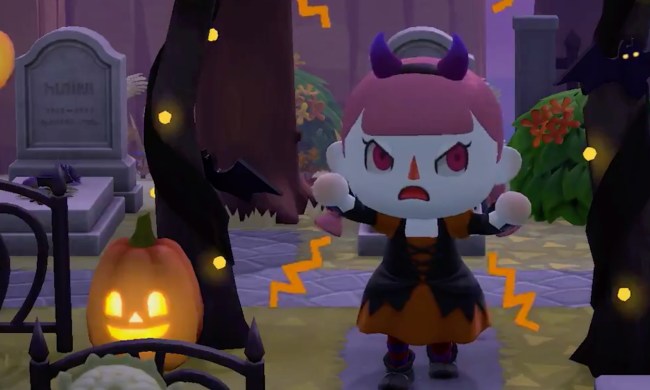Nintendo’s mobile games don’t get enough credit. While Nintendo had some undeniable hits like Pokémon Go and Fire Emblem Heroes, many consider the rest of its mobile efforts fairly underwhelming and even somewhat disappointing for a video game company of Nintendo’s stature. While nothing ever quite reached the high bar Pokémon Go set in 2016, Nintendo’s mobile games are a bit more influential than they get credit for.
Over the past few years, games like Pokémon: Let’s Go! Pikachu and Eevee, Animal Crossing: New Horizons, and Mario Kart 8 Deluxe have built upon their mobile counterparts. Then, during the September 13 Nintendo Direct, Fire Emblem Engage’s announcement and main gimmick cemented that Nintendo isn’t just viewing mobile games as a mostly failed side experiment. While they might not be the most successful games out there, their DNA is creeping into the Nintendo Switch’s bestselling titles.
Mediocre mobile returns
Nintendo’s mobile gaming efforts kicked off in the mid-2010s. Niantic created the AR game Pokemon Go, which quickly became a smashing success in 2016. In the six years since, the game has generated around 678 million installs and $6 billion in player spending, according to data from Sensor Tower.
While working with Niantic proved fruitful for The Pokemon Company, Nintendo partnered with DeNA for most of its initial mobile games. Unfortunately, none of these quite reached the heights analysts and Nintendo expected. Super Mario Run was a smash hit at launch but failed to sustain much interest and consistent revenue, so it’s considered a disappointment by Nintendo.
Meanwhile, other games like Animal Crossing: Pocket Camp, Mario Kart Tour, Dr. Mario World, and Dragalia Lost launched, and while they’ve still made lots of money for Nintendo, most haven't matched the success of the most popular mobile titles. The biggest exception to this is Fire Emblem Heroes, a gacha game where players can summon classic Fire Emblem characters. It’s had over $1 billion in player spending alone as of June 2022 and is Nintendo’s “flagship title on the [mobile} platform,” according to Sensor Tower.
More recently, Nintendo tried to recapture the success of Pokemon Go with Niantic’s Pikmin Bloom, although that game has reportedly disappointed as well. Overall, it’s understandable why some people are surprised to see only a couple of surefire mobile hits from a company with the pedigree of Nintendo and consider it a side venture that never realized its full potential. If you look closely at the console games in these series that Nintendo put out since, though, it isn’t ignoring everything learned while making mobile games.
Mobile's monumental impact
Nintendo has the masterful ability to find the strongest elements of an idea, draw those out, and then expand upon them to create something uniquely memorable. We’ve seen it do this time and time again with subsequent entries of its flagship series, but it’s a mindset it has applied to its mobile games upon closer inspection.
As far back as 2018, Pokemon: Let’s Go! Pikachu and Eevee recognized the charm of not needing to battle a Pokemon to capture it, and incorporated that into a traditional RPG experience. More recently, items and mechanics like gardening and cooking from Animal Crossing: Pocket Camp made their way into Animal Crossing: New Horizons and Mario Kart 8 Deluxe was able to revive its live service offerings by repurposing the best tracks and assets from Mario Kart Tour.
Fire Emblem Engage – Announcement Trailer - Nintendo Switch
The legacy of Nintendo’s mobile games could also be felt in the September 13 Nintendo Direct. The showcase’s first announcement was Fire Emblem Engage, which is turn-based strategy game where the main gimmick is being able to summon classic Fire Emblem characters with a ring. While it doesn’t look like Fire Emblem Engage goes full gacha, it’s clear that Nintendo recognized how people liked collecting and using classic Fire Emblem characters in a new adventure, so the developers drew and expanded upon that idea for Fire Emblem Engage.
Before the announcement of Pikmin 4, Shigeru Miyamoto also took a lot of time to highlight Pikmin Bloom. While we don’t know much about Pikmin 4’s gameplay, Nintendo could find some aspects of that game’s exploratory experience, weekly challenges, or something I’m not even thinking of to freshen up the next mainline game. The same could even happen with Super Mario Run the next time Nintendo decides to make a 2D Mario game.
While watching Fire Emblem Engage’s reveal during the latest Nintendo Direct, it became clear that Nintendo’s mobile games have quietly become influential forces in the company's console games. Nintendo has slowly plucked the best ideas out of them and brought them into Switch games without extra monetization. While the future is cloudy for Nintendo's seemingly stalled mobile push, I hope the company can still find a place for its games on mobile, using the platform as a space to experiment with its beloved series.



